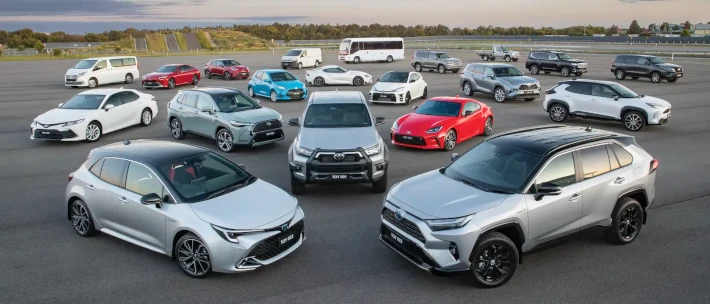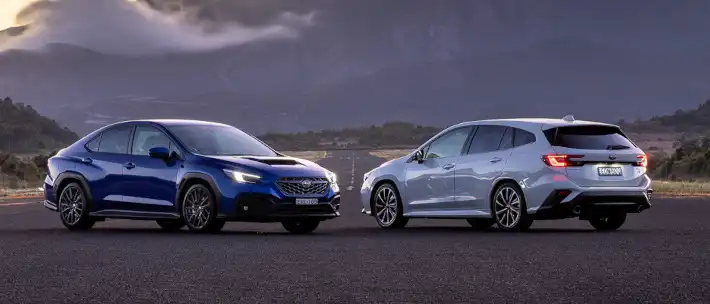While EVs are undoubtedly the car of the future, for the majority of Australian buyers in 2024, they remain just that - a proposition for the future, but not for right now.
For the first six months of 2024, electric vehicles accounted for an 8 per cent share of the overall market, which shows that a mix of consumer hesitation, less-than-accessible pricing and a raft of unknowns in terms of battery deterioration are holding a large number of buyers back.
Let’s take a close-up look at the pros and cons of electric cars to help you out with your search.
Electric Vehicle Pros
Let’s kick off with a look at the advantages of an electric vehicle over a more conventional petrol or diesel-powered vehicle.
Government Incentives: electric vehicles are currently eligible for several subsidies, both at the Federal and state/territory level that help to curb the sting of on-road pricing.
Instant Acceleration: if you’ve ever had a chance to flatten your right foot in an EV, you would have noticed just how immediate and impressive the acceleration can be, thanks to an electric motor’s instantaneous power delivery and often immense torque figures.
Running Costs: depending on where and how often you’re charging your electric vehicle, extremely low running costs are one of the best selling points. Charging your EV at home during off-peak hours can cost as little as $15 - 20 for a full charge, though using a pricier DC fast charger means you’ll fork out upwards of $50 per charge.
Refined Ride: electric vehicles drive near-silently, making for a particularly relaxing place to kick back on a daily drive.
Maintenance Costs: there’s a common misconception that EVs don’t really need to be serviced. While this is false, EVs are often a more affordable vehicle type to maintain due to there being several hundred fewer moving parts than an internal combustion engine.
Higher Luxury Car Tax Threshold: EVs benefit from a higher LCT price threshold, totalling $91,387 for the FY24/25 compared to $80,567 for internal combustion models.
FBT Exemption: EVs are currently exempt from the fringe benefits tax, which means huge potentially thousands in savings for those on a novated lease.
Manufacturer Bonuses: some electric vehicle makers are happy to sweeten the deal with a complimentary charging subscription or an AC wall box for you to charge at home.
Emerging Battery Technologies: battery degradation is perhaps the biggest hurdle for manufacturers to overcome when developing and selling an EV. This has fast-tracked development in battery technologies and chemistries inside the pack, with the promise of solid-state batteries said to offer greater range figures, faster charging speeds and a significantly smaller and lighter pack.
Interior Tech: EVs often benefit from the latest and greatest interior technology and safety equipment, offering more features than a comparable ICE-powered rival or sibling within the range.
Get in touch with one of our Car Buying Specialists today.
Request a quoteElectric Vehicle Cons
Now that we’ve covered the advantages of EVs, it’s time to take a look at some of the negatives of electric vehicles in 2024.
Range Anxiety: arguably the biggest thing holding electric vehicles back from mass adoption are range figures from current battery technology. Depending on the vehicle, your average EV offers upward of 300km per charge, increasing to 500km with a large battery pack.
Charging Infrastructure: EV charging stations are massively outnumbered by your typical servo, which is problematic, particularly for regional buyers and Aussies who love to road trip.
Pricing: as a new and emergency technology, electric vehicles are priced pretty aggressively here in Australia, though price tags are beginning to come back down to earth.
Battery Deterioration: batteries have a finite lifespan, which is typically mapped out in charge cycles. Over time and hundreds of cycles, an electric vehicle’s battery degrades which restricts its ability to hold a charge, resulting in a drop in range.
Highway Driving: electric vehicles are most efficient while driving around town, namely thanks to their regenerative braking system that, while you’re stuck in traffic, captures energy otherwise lost during braking. They’re least efficient at highway speeds which can be an issue for those tackling hundreds of straight-line kilometres.
Uncertain Resale Values: some major brands are consistently cutting prices for their latest model upgrades, causing resale values for some outdated models to tumble as buyers eye a better deal with a brand-new, cut-price model.
Battery Replacement Costs: EVs are powered by a huge battery pack that could power the average Aussie household for three or more days. This means that paying for an out-of-warranty repair replacement battery pack is mighty expensive. Read: How Much Does It Cost to Replace a Battery in an Electric Vehicle (EV).
Weight: large battery packs add significant weight to a vehicle, which you’re likely to notice on the road, particularly in the corners.
Weather Extremes: battery packs are very sensitive to extreme temperature fluctuations, with cold and sweltering-hot days often reducing range and charging speeds.
Is it Worth Buying an Electric Car in Australia?
For many Aussies, buying an electric vehicle is a great purchase that offers significant savings over time - though it’s not a straightforward answer for all buyers.
While competition is heating up at the budget end of the price spectrum, electric vehicles remain somewhat out of reach for all buyers, while factors like range anxiety, battery deterioration and a lack of nationwide charging infrastructure are hard to ignore.
The answer, for now, largely depends on both where, and how far you’re driving on a typical week, with EVs proving a great option, particularly for urban dwellers.
What’s undeniable, though, is that EVs are going to continue to evolve - at lightning pace - and become increasingly more capable and affordable, while the infrastructure side of the equation should improve as more stations come online.
Request a Quote
If you’re looking to upgrade to a new car, be sure to reach out to one of our car-buying experts who can take the stress out of the buying process.
Get in touch with one of our Car Buying Specialists today.
Request a quote







